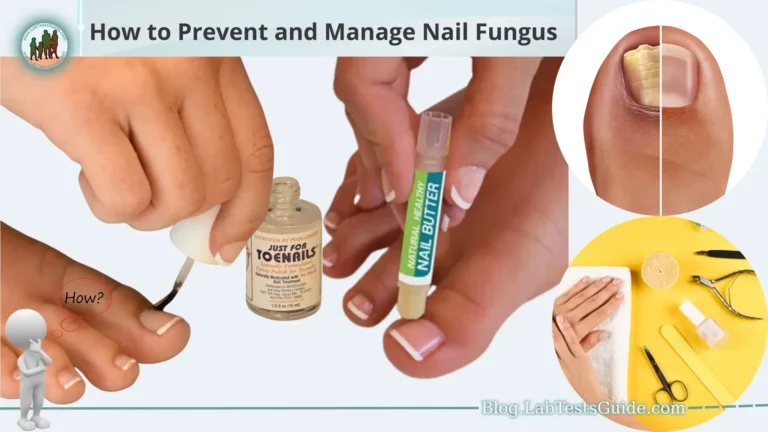Respiratory allergies can significantly impact the quality of life for individuals, and this includes girls who experience these allergies. Allergies occur when the immune system overreacts to certain substances, known as allergens, leading to a range of respiratory symptoms. It’s essential for girls to effectively manage their respiratory allergies to minimize discomfort and maintain an active and healthy lifestyle.

This guide aims to provide valuable information and strategies specifically tailored for girls dealing with respiratory allergies. From understanding the triggers and symptoms to seeking medical help, creating allergy-free environments, and coping emotionally, this guide covers various aspects of managing respiratory allergies. Additionally, it explores how girls can strike a balance between their allergies and personal style, navigate travel with allergies, and offers additional resources for further support and information.
Understanding Respiratory Allergies:
What are Respiratory Allergies?
Respiratory allergies, also known as allergic respiratory conditions, refer to allergic reactions that primarily affect the respiratory system. When an individual with respiratory allergies comes into contact with specific allergens, their immune system reacts in an exaggerated manner, leading to various respiratory symptoms. Common respiratory allergies include allergic rhinitis (hay fever), allergic asthma, and allergic sinusitis.
Common Triggers for Respiratory Allergies:
Respiratory allergies can be triggered by a wide range of substances, including:
Pollen: Pollen from trees, grasses, and weeds is a common allergen that can cause seasonal allergies.
Dust mites: These microscopic insects live in dust and can trigger allergic reactions, especially in indoor environments.
Pet dander: Allergies to pet dander, which includes flakes of skin, fur, or feathers, are common among individuals with respiratory allergies.
Mold spores: Mold can be found both indoors and outdoors and can trigger allergic reactions when inhaled.
Smoke: Cigarette smoke, secondhand smoke, and other forms of smoke can worsen respiratory allergies.
Air pollutants: Chemicals, fumes, and other air pollutants can irritate the respiratory system and trigger allergies.
Certain foods: Some individuals with respiratory allergies may experience symptoms triggered by specific foods, such as shellfish or nuts.
Respiratory infections: In some cases, respiratory allergies can be triggered or exacerbated by respiratory infections, such as colds or the flu.
Symptoms of Respiratory Allergies:
Respiratory allergies can manifest through various symptoms, including:
- Sneezing
- Runny or stuffy nose
- Itchy or watery eyes
- Nasal congestion
- Coughing
- Wheezing or difficulty breathing
- Sinus pressure or headaches
- Fatigue
- Post-nasal drip (mucus dripping down the throat)
- Allergic shiners (dark circles under the eyes)
- Itchy throat or ears
It’s important to note that the severity and specific symptoms may vary from person to person. If you experience these symptoms regularly, especially in response to certain triggers, it’s advisable to seek medical help for proper diagnosis and treatment.
Diagnosis and Treatment:
Seeking Medical Help: If you suspect respiratory allergies, it’s important to seek medical help for an accurate diagnosis and appropriate treatment. Start by scheduling an appointment with a healthcare professional, such as an allergist or immunologist, who specializes in allergic conditions. They will evaluate your symptoms, medical history, and may perform specific tests to determine the presence of respiratory allergies.
Allergy Testing
Allergy testing helps identify specific allergens that trigger your respiratory allergies. Common allergy tests include.
- Skin prick test: Small amounts of allergens are applied to your skin with a tiny needle or lancet. If you’re allergic, you may develop a small raised bump or redness at the test site.
- Blood test: A blood sample is taken to measure the levels of specific antibodies, such as immunoglobulin E (IgE), in response to allergens.
These tests can help pinpoint the allergens causing your respiratory allergies, guiding the development of a personalized treatment plan.
Medications for Respiratory Allergies:
Treatment for respiratory allergies often involves medications to alleviate symptoms and manage allergic reactions. Common medications include.
- Antihistamines: These medications block the effects of histamine, a chemical released during an allergic reaction, reducing symptoms like sneezing, itching, and runny nose.
- Nasal corticosteroids: These sprays help reduce inflammation in the nasal passages, relieving symptoms such as congestion and nasal itching.
- Decongestants: Oral or nasal decongestants can provide temporary relief from nasal congestion by narrowing blood vessels and reducing swelling.
- Leukotriene modifiers: These medications block the action of certain chemicals involved in allergic reactions, helping to reduce symptoms like wheezing and shortness of breath.
- Allergy shots (Allergen immunotherapy): In some cases, allergen immunotherapy may be recommended. It involves regular injections of small amounts of allergens to desensitize your immune system over time.
The specific medications prescribed will depend on your symptoms, medical history, and the severity of your respiratory allergies. Always follow your healthcare provider’s instructions and consult with them before starting or stopping any medications.
Allergen Immunotherapy:
Allergen immunotherapy, commonly known as allergy shots, may be considered for individuals with severe respiratory allergies that do not respond adequately to medications or avoidance measures. Allergy shots involve regular injections of small amounts of allergens, gradually increasing the doses over time. This treatment aims to desensitize the immune system, reducing the severity of allergic reactions. Allergen immunotherapy is typically a long-term commitment and should be administered under the supervision of a healthcare professional.
It’s important to note that while medications and allergen immunotherapy can help manage respiratory allergies, they do not provide a cure. The focus is on symptom relief, reducing the frequency and severity of allergic reactions, and improving quality of life.
Managing Respiratory Allergies in Daily Life:
Here are some strategies to help manage respiratory allergies in your daily life.
Creating an Allergy-Free Environment at Home:
- Keep your living space clean: Regularly dust, vacuum, and mop to minimize dust mites, pet dander, and other allergens. Consider using a vacuum cleaner with a HEPA filter.
- Use allergen-proof bedding: Encase mattresses, pillows, and duvets in allergen-proof covers to create a barrier against dust mites.
- Minimize indoor humidity: Use a dehumidifier to keep indoor humidity levels below 50%, which helps inhibit mold growth.
- Keep windows closed: When pollen levels are high, keep windows closed to prevent allergens from entering your home.
Tips for Reducing Exposure to Allergens:
- Monitor pollen forecasts: Stay aware of pollen levels and plan outdoor activities on days with lower pollen counts.
- Wear a mask: If you need to do outdoor tasks that may expose you to allergens, wearing a mask can help filter the air you breathe.
- Keep pets out of the bedroom: To minimize exposure to pet dander, create pet-free zones, especially in your sleeping area.
- Clean air filters: Regularly clean or replace air filters in your home’s HVAC system to trap allergens effectively.
Personal Hygiene Practices:
- Shower before bed: Washing your body and hair before going to bed can remove allergens that have accumulated on your skin and hair throughout the day.
- Rinse nasal passages: Use a saline solution or nasal irrigation system to rinse your nasal passages and remove allergens.
- Wash hands frequently: Regular handwashing helps prevent allergens from spreading to your face and eyes.
Dealing with Allergies at School
- Communicate with teachers and school staff: Inform teachers and school staff about your respiratory allergies, triggers, and necessary precautions.
- Medication management: If prescribed medications, ensure you have a plan in place for safely storing and administering them at school.
- Allergy-friendly snacks: Pack allergy-friendly snacks to avoid allergens during snack time.
Managing Allergies During Physical Activities:
- Choose appropriate exercise environments: Opt for indoor exercises or outdoor activities during times when allergen exposure is lower, such as after rain.
- Warm-up and cool-down indoors: Begin and end your physical activities indoors to minimize exposure to outdoor allergens.
- Consider wearing a mask: If exercising outdoors during high pollen periods, wearing a mask can help reduce allergen inhalation.
Coping with Respiratory Allergies Emotionally:
Here are some suggestions,
Understanding Emotional Impact:
- Acknowledge your feelings: Recognize and validate the emotions you experience due to respiratory allergies. It’s normal to feel frustrated or down at times.
- Educate yourself: Learn more about respiratory allergies, triggers, and treatment options. Understanding your condition can help you feel more empowered and in control.
- Connect with others: Seek support from friends, family, or support groups where you can share experiences, seek advice, and receive encouragement from others who understand what you’re going through.
Seeking Support:
- Talk to a healthcare professional: Discuss your emotional challenges with your healthcare provider. They can offer guidance, support, or refer you to a mental health professional if needed.
- Consider therapy: Therapy, such as cognitive-behavioral therapy (CBT), can help you develop coping mechanisms, manage stress, and navigate the emotional impact of respiratory allergies.
Developing Coping Strategies:
- Practice stress management techniques: Engage in relaxation techniques like deep breathing exercises, meditation, or yoga to reduce stress and anxiety.
- Focus on self-care: Prioritize self-care activities that promote overall well-being, such as regular exercise, sufficient sleep, and a healthy diet.
- Pursue hobbies and interests: Engage in activities that bring you joy and take your mind off your allergies. It could be art, music, writing, or any other activity that you find fulfilling.
- Stay positive and resilient: Cultivate a positive mindset and practice resilience. Focus on what you can control, celebrate small victories, and maintain a hopeful outlook.
Balancing Allergies and Personal Style:
Here are some tips,
Choosing Appropriate Clothing:
- Opt for allergen-resistant fabrics: Choose clothing made from hypoallergenic materials like cotton or synthetic fibers that are less likely to trap allergens.
- Wash clothes regularly: Regularly wash your clothes to remove allergens that may have settled on the fabric.
- Avoid clothes with textures or embellishments: Certain textures and embellishments can attract and trap allergens. Opt for simpler, smoother fabrics.
- Consider wearing a hat and sunglasses: Wearing a hat and sunglasses when outdoors can help shield your face from allergens like pollen.
Makeup and Skincare Considerations:
- Read labels: Look for makeup and skincare products that are labeled hypoallergenic, fragrance-free, and non-comedogenic (won’t clog pores).
- Patch test new products: Before applying new makeup or skincare products to your face, do a patch test on a small area of skin to check for any allergic reactions.
- Clean makeup brushes regularly: Regularly clean your makeup brushes and sponges to remove built-up allergens and bacteria.
- Consider natural or mineral-based products: Some individuals with allergies find that natural or mineral-based makeup products are less likely to cause irritation.
Hairstyles and Allergies:
- Keep hair clean and tied up: Washing your hair regularly helps remove allergens that may have accumulated. Consider tying your hair up to minimize contact with your face and eyes.
- Avoid hair products with strong fragrances: Strongly scented hair products can trigger allergies for some individuals. Opt for fragrance-free or milder alternatives.
- Be mindful of outdoor conditions: On high pollen days, consider wearing a hat or scarf to cover your hair and protect it from allergens.
Traveling and Respiratory Allergies:
Here are some tips to help you manage your allergies while traveling.
Research Your Destination:
- Check pollen levels: Before traveling, research the pollen levels at your destination during your planned travel dates. Consider visiting during seasons with lower pollen counts if possible.
- Learn about local allergens: Understand the common allergens in the area you’re visiting. This will help you anticipate potential triggers and take necessary precautions.
Pack Smart:
- Medications and prescriptions: Pack an ample supply of your allergy medications, including antihistamines, nasal sprays, or any other prescribed medications. Keep them in your carry-on bag for easy access.
- Allergen-proof pillowcase and bedding: If you have severe allergies, consider bringing your own allergen-proof pillowcase or bedding to minimize exposure to potential allergens in hotel rooms.
- Portable air purifier: If you’re particularly sensitive to allergens, you may consider traveling with a portable air purifier to help reduce allergens in your hotel room or accommodations.
- Inform travel companions: Let your travel companions know about your respiratory allergies, so they can be supportive and understanding during the trip.
Air Travel Considerations:
- Contact the airline: Inform the airline about your allergies and inquire about their policies regarding allergen control, such as allowing pre-boarding to wipe down your seating area.
- Choose allergy-friendly seating: Opt for a window seat, as it may have less exposure to allergens compared to an aisle seat.
- Carry necessary medications on board: Keep your allergy medications with you in your carry-on bag to have immediate access during the flight.
Allergies and Accommodation:
- Request allergy-friendly accommodations: Inform your hotel or accommodation about your allergies in advance, and request allergy-friendly rooms, such as those with hypoallergenic bedding or pet-free rooms.
- Avoid allergens in the room: Upon arrival, inspect your room for any potential allergens, such as dust or mold. Consider wiping down surfaces and using an air purifier if needed.
Outdoor Activities:
- Check local weather conditions: Monitor weather conditions and pollen forecasts at your destination. Plan outdoor activities on days with lower pollen counts if possible.
- Wear appropriate clothing: Dress in long-sleeved shirts, pants, and a hat to minimize direct contact with allergens, such as pollen or outdoor pollutants.
- Carry necessary medications: Have your allergy medications readily available during outdoor activities in case of an allergic reaction.
Dining with Allergies:
- Communicate dietary restrictions: Inform restaurants and food establishments about your allergies and any dietary restrictions you have. Read food labels and ask about ingredients if you’re unsure.
- Carry emergency medication: Keep your emergency allergy medication, such as epinephrine auto-injectors, with you in case of a severe allergic reaction.
FAQs:
Can respiratory allergies be cured?
Respiratory allergies cannot be cured, but their symptoms can be managed effectively through various treatment options. Medications, allergen immunotherapy (allergy shots), and lifestyle modifications can help alleviate symptoms and reduce the frequency and severity of allergic reactions.
How long do respiratory allergies last?
The duration of respiratory allergies can vary depending on the individual and the specific allergens involved. Some people may experience seasonal allergies that occur during specific times of the year, while others may have year-round allergies. With proper management and treatment, symptoms can be controlled and minimized.
Can respiratory allergies develop later in life?
Yes, respiratory allergies can develop at any age, even if you have not previously experienced allergic reactions. It is possible for individuals to develop allergies later in life due to changes in the immune system or exposure to new allergens.
What are common triggers for respiratory allergies?
A4: Common triggers for respiratory allergies include pollen from trees, grasses, and weeds, dust mites, pet dander, mold spores, and certain irritants such as smoke or strong odors. Identifying and avoiding specific allergens is key to managing respiratory allergies effectively.
Can stress worsen respiratory allergies?
While stress itself may not directly cause respiratory allergies, it can worsen allergy symptoms. Stress can weaken the immune system and make individuals more susceptible to allergens. Additionally, stress can trigger or exacerbate existing respiratory allergy symptoms, leading to increased discomfort and severity of allergic reactions.
Can I exercise with respiratory allergies?
Yes, exercise is generally beneficial for overall health, including respiratory allergies. However, some individuals with respiratory allergies may experience exercise-induced symptoms such as coughing, wheezing, or shortness of breath. It is important to consult with a healthcare professional for personalized advice and guidance on managing exercise and allergies effectively.
Are there natural remedies for respiratory allergies?
Some individuals may find relief from respiratory allergy symptoms through natural remedies. These can include saline nasal rinses, steam inhalation, herbal teas, and local honey. However, it is important to note that natural remedies may not work for everyone, and it is recommended to consult with a healthcare professional before trying any new treatments or supplements.
Can respiratory allergies lead to asthma?
Respiratory allergies and asthma are closely related, and allergies can be a trigger for asthma symptoms in some individuals. People with respiratory allergies may be at a higher risk of developing asthma or experiencing asthma attacks triggered by allergens. It is important to manage respiratory allergies effectively to minimize the risk of asthma complications.
Can I outgrow respiratory allergies?
While it is possible to outgrow certain allergies, such as those to food or environmental allergens, respiratory allergies tend to persist throughout adulthood. It is advisable to work with a healthcare professional to manage respiratory allergies effectively, even if symptoms seem to improve over time.
Can I travel with respiratory allergies?
A10: Yes, individuals with respiratory allergies can travel. It is important to plan ahead, research your destination for potential allergens, pack necessary medications, and take precautions to minimize exposure to allergens during the trip. Consulting with your healthcare provider before traveling can provide personalized advice and recommendations for managing allergies while on the go.
Conclusion:
In conclusion, managing respiratory allergies as a girl involves understanding the condition, getting an accurate diagnosis, and receiving appropriate treatment from healthcare professionals. By creating an allergy-free environment at home, reducing exposure to allergens, and practicing personal hygiene, you can minimize allergy symptoms in your daily life. Coping with respiratory allergies emotionally is also important, and seeking support, developing coping strategies, and prioritizing self-care can help you navigate the emotional impact of allergies. Balancing allergies with personal style requires choosing suitable clothing, makeup, and hairstyles that minimize allergen exposure while still expressing your unique style. When traveling, proper planning, packing necessary medications, and taking precautions can ensure a comfortable trip. Lastly, addressing frequently asked questions about respiratory allergies provides important information to help you understand and manage your condition effectively. Remember, working closely with healthcare professionals and following personalized management plans are key to successfully managing respiratory allergies and living a fulfilling life.






